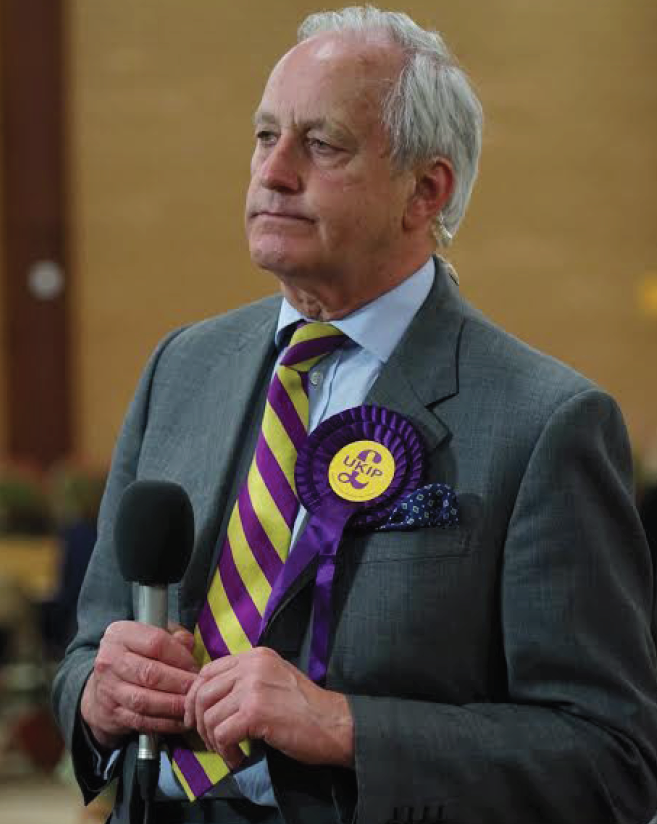 THE HERALD caught up with Neil Hamilton on the eve of his visit to Llanelli to view his office.
THE HERALD caught up with Neil Hamilton on the eve of his visit to Llanelli to view his office.
We took the chance to ask him about his living arrangements given the row over his expenses and calls for him to reside in Wales. Did he have any plans for a bedsit in Ammanford or Llanelli?
Neil Hamilton told us: “I do have accommodation available to me around the regions staying with friends. In fact, our old neighbour in Ammanford is still there in 14 Florence Road. She is creating a flat, which I could use. The reality is with a region as vast as Mid and West Wales, I am never going to be in a place where I can travel to and go home for the night.
“This week I am in Llanelli on Wednesday, Blaenau Festiniog on Thursday and Shotton on Friday, so having a flat in Ammanford isn’t going to be that much use to me. It would just be a place to lay my head and, actually, what does it matter where you are when you are unconscious?
“There is no public interest in that at all. The main thing is what do you do in your waking hours. How do you carry out your duties in your job as AM? I am 100% committed to my job in my waking hours to doing my best as I see it for the people of Wales.”
Something is required to replace the former EU Common Agricultural Policy now that the UK has voted to leave the EU. We asked Mr Hamilton what would replace CAP and how much he envisaged farmers would lose by way of subsidies and support.
Wearing his hat as UKIP’s agriculture spokesperson in Wales, Mr Hamilton replied: “We have the opportunity to paint on a blank canvas. Leaving the EU means that Wales can have its own agricultural policy because it is a devolved matter.
“There won’t be a British agricultural policy in the future. There will be four separate agricultural policies for different parts of the UK. Our agricultural policy in Wales might be quite different from that of England and Scotland. Our geography, climate and soil conditions means that we may have different interest from other parts of the UK and other priorities. We have been told in the past what we can grow.
“I think the basis of any agricultural policy is keeping farmers on the land having the countryside properly cared for, wildlife management and environmental considerations being an important part of the mix. Wales is a very diverse area. A Welsh agricultural policy may place a greater emphasis on upland farmers than the rest of the country, for example.
“We have 29% of the UK’s sheep in Wales. The mix is very different to many parts of the country. It is up to us to devise an agricultural policy that provides a compromise between competing interests within Wales but means that we do our best to prevent the drift from land and also that we do our best to ensure that we have security of food supply. We won’t see the bottom falling out of the agricultural market. We get back what we pay for and we have paid for a lot more and get nothing back. There is £10 billion a year, on top of what the EU spends in Britain, to be carved up. Wales should get at least another £500 million on top of the money the EU spends here at the moment.”
We asked Mr Hamilton if he agreed with the National Trust’s view that subsidies should only be paid to farmers who implement greening measures.
“It depends what you mean by ‘greening’. The environment and care of the countryside is an important part of an agricultural policy. The current policy does allow for this. 15% of CAP goes towards modulation, environmental schemes. That is controversial in the farming community. It is up to us to decide for ourselves what is most appropriate.
“I have started a consultation process with Farmers Union of Wales the NFU, the Countryside Landowners Association and anyone who is interested in farming and the countryside to participate so that UKIP’s agricultural policy comes up from the grass-roots and does not get imposed from the top.
“The Welsh government are all over the place and have done no thinking about what would happen if we left the EU. Let’s take advantage of this vacuum and fill it.”
With Trostre’s future still uncertain, we asked Mr Hamilton for his views on the steel industry’s future in Wales: “I don’t know enough about the economics of the Trostre plant. We have a great opportunity now to recover our ability to impose anti dumping duties on imports of steel which are being sold way below cost. We can also do something about the crazy energy polices that we have got which makes it virtually impossible for heavy industry to be competitive.
“Green taxes on top of the actual costs of producing electricity have made huge swathes of industry in Britain totally uncompetitive. We have virtually closed them all down.
“We have put up with EU policies. As our policies become more sophisticated, the lower value industries will relocate to other parts of the world. There are long term trends we can’t reverse.
“Energy prices in Britain are twice as high as those in Germany. If we could cut 3% from the costs of steel making in Britain, that would be a major gain. If we could stop Chinese imports coming in at a fraction of the cost of producing the steel, that would bolster markets as well. It is what happens when you recover control of your own country.”
Like Labour, UKIP is facing its own leadership election, we asked for Neil Hamilton’s view on the approach taken by UKIP’s main financial backer Arron Banks, and his intervention in the controversy about the leadership election.
Mr Hamilton was forthright: “UKIP is not for sale. I am totally opposed to the idea that the democratically elected National Executive Committee which is the supreme governing body of UKIP should be abolished and replaced by a board which would be the placing of a leader.
“Arron Banks has only been a member of UKIP for the last 18 months or so. He has loads of money and thinks he can run a political party like a business. Well, you can’t, I’m afraid. Political parties are not businesses. Many people have suffered under this illusion in the past. Business men often get frustrated with politics. You press levers and nothing happens or the wrong thing happens. That is democracy. You can’t just boss them about.
“This is a battle for the soul of UKIP. The Banks model is based on the EU model. Banks wants it run like a bank! He is a very smart, sharp-elbowed, successful business man. You can’t run a party like you run your own business.”
Mr Hamilton told The Herald that he was visiting Llanelli on Wednesday (Aug 10). He said: “I am meeting Llanelli UKIP this week and looking at offices in Wales. I want to open offices in Mid and West Wales.
“We are opening an office in Whitland for Carmarthenshire West and Pembrokeshire. There will be someone there seven days a week and if anyone wants to speak to me, they will make those appointments.”
When asked about the future of UKIP in Wales, he said: “I see UKIP’s future as being the party of the working people. We describe ourselves as a small state libertarian party. We are the party of the working man, the self-employed and the forgotten. There are a lot of ex-Labour Party members who feel like that. If you look at where UKIP did best at the elections, it is in seats where Labour were at their strongest.”
We asked Neil Hamilton for his views on Jeremy Corbyn and Owen Smith. He said: “Jeremy Corbyn is a principled man and I admire him for that. Owen Smith is an Armani suited ex-lobbyist for a big pharmaceutical company. That doesn’t seem to represent the Labour Party in Wales. Jeremy Corbyn doesn’t either. He is part of the cosmopolitan, multi-cultural, internationalist elite that has long lost touch with the Labour voters. It is a world away from when Jim Griffiths as MP for Llanelli. The miners’ halls and meeting places have all long gone.
“The likes of Jeremy Corbyn have got as much in common with the people in South Wales as the man on the moon.”


















Add Comment